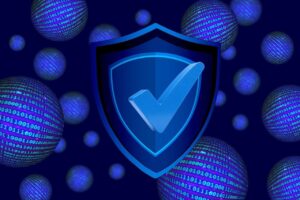We live in an increasingly connected world — but also a more vulnerable one. Data theft, online tracking, and digital scams are real risks, even for everyday users. Fortunately, protecting your digital privacy doesn’t have to be complicated. With a solid basic digital security kit, you can browse the internet with greater peace of mind.
In this practical guide, you’ll understand the role of three essential tools — VPN, secure browser, and antivirus — and how to use them in daily life, even if you’re not tech-savvy.

Content
What Is a Basic Digital Security Kit?
A basic digital security kit is the minimum set of tools that anyone should use to protect their personal data and online identity. It serves as a first layer of defense and helps prevent common threats like:
-
Phishing scams
-
Invasive trackers and cookies
-
Data breaches
-
Viruses and malware
These three tools are essential:
-
VPN (Virtual Private Network)
-
Secure browser
-
Reliable antivirus
VPN: Browse Privately

A VPN (Virtual Private Network) hides your real IP address and encrypts your internet connection, protecting your data — even on public Wi-Fi networks.
Why a VPN matters for everyday users:
-
Safeguards your data on public networks (cafes, airports, hotels)
-
Prevents websites and apps from tracking your location
-
Enhances your privacy on streaming services and social media
Trusted VPN options:
👉 Looking for free options? Check our updated guide: Top 5 Free and Reliable VPNs
Secure Browser: Your Safe Window to the Web

The browser you use has a direct impact on your online security. Many popular browsers collect and share user data — which can pose serious privacy risks.
Privacy-focused browsers:
-
Brave – blocks ads and trackers by default
-
Firefox Focus – ideal for private mobile browsing
-
Tor Browser – routes traffic through the anonymous Tor network for maximum privacy
These browsers help you avoid tracking, browser fingerprinting, and third-party data collection.
Antivirus: Your Shield Against Digital Threats

Even with a VPN and a secure browser, you’re still at risk from malicious files, phishing links, and compromised websites. A good antivirus adds an extra layer of protection.
What to look for in antivirus software:
-
Real-time threat detection
-
Automatic updates
-
Scans of links and email attachments
Beginner-friendly antivirus options:
-
Windows Defender (built-in and highly effective on Windows systems)
Extra Tips to Strengthen Your Digital Security
In addition to your basic security kit, here are some best practices to keep your data safe:
-
Use strong, unique passwords (with a password manager)
-
Enable two-factor authentication (2FA) wherever possible
-
Avoid clicking on suspicious links in emails or social media
-
Keep your software up to date
👉 Bonus guide: 10 Practical Tips to Protect Your Digital Privacy
Conclusion: Digital Security Starts with the Basics
You don’t need to be a hacker or IT expert to protect yourself online. With a VPN, a secure browser, and a reliable antivirus, anyone can build a basic digital security kit and take the first step toward a safer online life.




